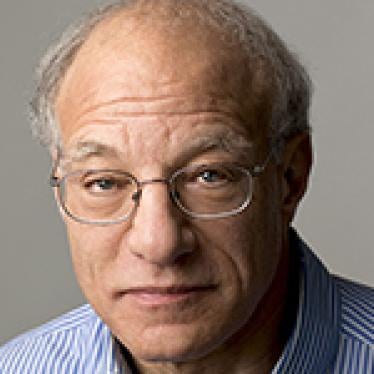The imminent execution of Saddam Hussein and two other former Iraqi officials marks a further step away from respect for human rights and the rule of law in a deeply polarised and violent Iraq.
The trial judgment was not finished when the verdict and sentence were announced on November 5. The record only became available to defence lawyers on November 22. According to the tribunal's statute, the defence attorneys had to file their appeals on December 5, which gave them less than two weeks to respond to the 300-page trial decision. The appeals chamber never held a hearing to consider the legal arguments presented as allowed by Iraqi law. It defies belief that the appeals chamber could fairly review a 300-page decision together with written submissions by the defence and consider all the relevant issues in less than three weeks.
This follows a trial whose serious flaws rendered the verdict unsound. The trial was undermined from the start by persistent political interference from the Iraqi government. Furthermore, the rights of the defendants were systematically denied by failures to disclose key evidence to the defence. There were also serious violations of the defendants' rights to confront witnesses testifying against them. Most disturbing were the frequent lapses of judicial demeanour by the trial's second presiding judge. In January, the first chief judge resigned in protest over the public criticism of his trial management practices by leading officials.
These failures contrast with the seriousness of the cases before the tribunal. For the first time since the postwar Nuremberg trials, almost the entire leadership of a repressive government faced trial for gross human rights violations. It offered the chance to create a historical record of some of the regime's unspeakable rights violations and to begin the process of accounting for the policies and decisions that gave rise to them. Trials conforming to international standards of fairness would have been more likely to ventilate and verify the historical facts, contribute to the public recognition of the experiences of victims, and set a more stable foundation for democratic accountability. Instead, unlike the Nuremberg trials, the proceedings have fallen far short of creating the reference point that could clarify for Iraqis what happened and why.
The death sentence is a further step away from respect for human rights. The death penalty, regardless of the crimes involved, is tantamount to cruel and inhuman punishment. For an Iraq where, one hopes, human rights and the rule of law will one day be respected, Saddam's punishment is an important benchmark. The execution order signals the shallowness of the government's commitment to basic human rights in meting out punishment.
The momentary elation over Saddam's demise among those who suffered under his regime will not outweigh or outlast the loss of a unique opportunity to establish a clear record of his regime's criminality. The flawed trial and a fast-track execution send a clear signal that political interference is still very much a feature of the judicial process in the new Iraq.









